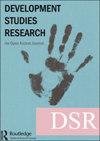An investigation of relationship between global economic sanction and life expectancy: do financial and institutional system matter?
Q2 Social Sciences
引用次数: 9
Abstract
ABSTRACT This article examines the impact of cross-border economic sanctions (CES) on the quality of national health – proxied by life expectancy. Structural gravity models are employed for a sample of 148 sanctioned countries (108 developing countries and 40 developed countries) during the 1995–2018 period. We consider various forms of sanction, including arms, military, trade, finance and travel. The results reveal that the imposition of sanctions, especially arm, financial, travel and other sanctions, has a significant negative effect on the national health of the targeted countries. The effects are largely heterogeneous across sanctioned countries in terms of their economic development. Furthermore, financial market development and institutional quality of the sanctioned countries critically affect the relationship between CES and national health. Particularly, more developed financial markets, the higher degree of financial openness and central bank independence, as well as higher institutional quality, help targeted countries alleviate the consequences of CES on national health. These empirical findings are expected to provide insightful lessons for economists and policymakers in the targeted countries facing the risk of economic degradation.全球经济制裁与预期寿命关系的调查:金融和制度制度重要吗?
摘要本文研究了跨境经济制裁对国民健康质量的影响——以预期寿命为代表。结构重力模型用于1995-2018年期间148个受制裁国家(108个发展中国家和40个发达国家)的样本。我们考虑各种形式的制裁,包括武器、军事、贸易、金融和旅行。结果表明,实施制裁,特别是武器、金融、旅行和其他制裁,对目标国家的国民健康产生了重大负面影响。就受制裁国家的经济发展而言,其影响在很大程度上是异质的。此外,受制裁国家的金融市场发展和制度质量严重影响消费电子产品与国民健康之间的关系。特别是,更发达的金融市场、更高程度的金融开放和央行独立性,以及更高的制度质量,有助于目标国家减轻消费电子产品对国民健康的影响。这些实证研究结果有望为面临经济退化风险的目标国家的经济学家和政策制定者提供深刻的经验教训。
本文章由计算机程序翻译,如有差异,请以英文原文为准。
求助全文
约1分钟内获得全文
求助全文
来源期刊

Development Studies Research
Social Sciences-Development
CiteScore
3.20
自引率
0.00%
发文量
20
审稿时长
12 weeks
期刊介绍:
Development Studies Research ( DSR) is a Routledge journal dedicated to furthering debates in development studies. The journal provides a valuable platform for academics and practitioners to present their research on development issues to as broad an audience as possible. All DSR papers are published Open Access. This ensures that anyone, anywhere can engage with the valuable work being carried out by the myriad of academics and practitioners engaged in development research. The readership of DSR demonstrates that our goal of reaching as broad an audience as possible is being achieved. Papers are accessed by over 140 countries, some reaching over 9,000 downloads. The importance of the journal to impact is thus critical and the significance of OA to development researchers, exponential. Since its 2014 launch, the journal has examined numerous development issues from across the globe, including indigenous struggles, aid effectiveness, small-scale farming for poverty reduction, sustainable entrepreneurship, agricultural development, climate risk and the ‘resource curse’. Every paper published in DSR is an emblem of scientific rigour, having been reviewed first by members of an esteemed Editorial Board, and then by expert academics in a rigorous review process. Every paper, from the one examining a post-Millennium Development Goals environment by one of its architects (see Vandermortele 2014), to ones using established academic theory to understand development-imposed change (see Heeks and Stanforth 2015), and the more policy-oriented papers that contribute valuable recommendations to policy-makers and practitioners (see DSR Editor’s Choice: Policy), reaches a multidisciplinary audience.
 求助内容:
求助内容: 应助结果提醒方式:
应助结果提醒方式:


